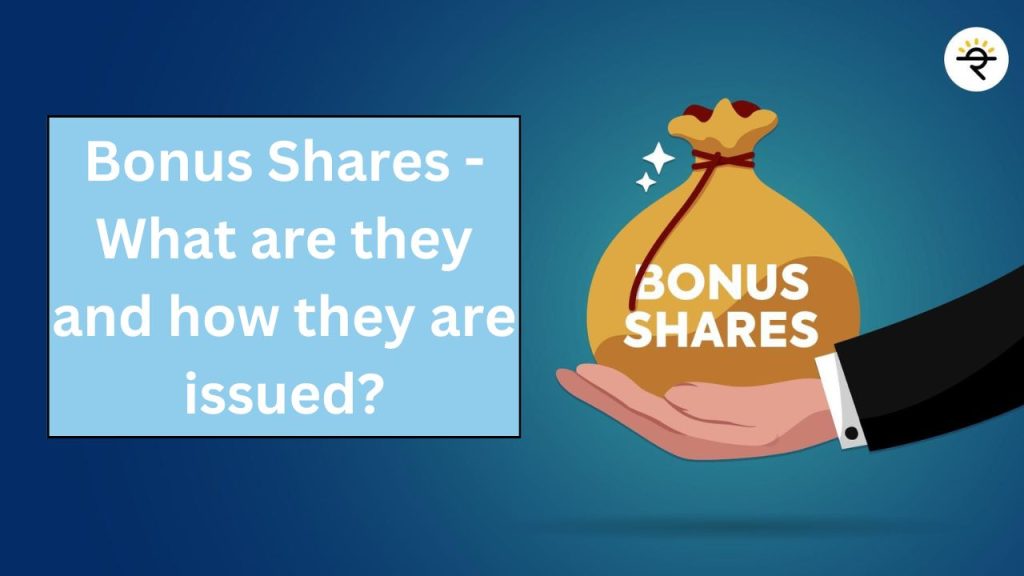Bonus Shares: What are they, and how are they issued? Who does not like a bonus? If you get something over and above and that too free of cost, would you not like it? Well, yes, of course. This article will discuss one of the great things about free and bonus, which is bonus shares.
Quick Links
Bonus Shares
What are Bonus shares?
Bonus shares are the additional shares allotted to each shareholder, without any extra cost, in a certain predetermined ratio. This ratio states the number of shares to be issued to such a shareholder in proportion to the number of shares held by him or her. E.g. if the bonus shares ratio is 3:1, then it would mean that for each share, the shareholder will get 3 shares. So, if Mr. A holds 10 shares, then he is eligible to get 30 shares. Check out – Principles of Commercial Banks.
Features of Bonus shares
From the company aspect:-
The company will have an increased equity base in the open market. Issuing bonus shares will also encourage retail participation in the company stocks. When the bonus shares are issued, the market price comes down in proportionate amounts. This also benefits the company in a way that small-time investors can also subscribe to the company stocks during such decreased prices. This is the primary reason for which bonus shares are issued. It increases the liquidity of stock in the market, thereby aiding increased trading.

From the shareholder aspects
The shareholders don’t have to pay anything to acquire or to be eligible for receiving such bonus shares. This means nil cost of acquisition of additional shares. This is attractive to general small-time shareholders, who would prefer to hold the shares for a long time. This is because the bonus issue will increase his holdings in the company without any additional cost of acquisition.
How they are issued?
- Bonus shares are issued without accepting any consideration from the shareholders. Hence, they require proportionate reserves to be transferred to the share capital, for effecting an increase in the number of shares. Reserves from which the bonus issue can be carried out are – free reserves, securities premiums, and Capital redemption Reserves.
- The Board meeting has to be convened with proper quorum and will pass the resolution approving the bonus issue and determine the date of the general meeting where the proposal is put forward for voting for the shareholders. Filing of form MGT-14 is required by attaching the board resolution.
- The bonus issue has to be approved at the general meeting, where the shareholders or board of directors will put forward the proposal and will be voted on by the shareholders. This meeting will also have a vote on determining the record date and issuance date. The company auditor is required to be present at this general meeting.
- Once the resolution in favor of the bonus issue is passed at the general meeting, a board meeting is to be convened once again. The purpose is to pass the resolution for the allotment of bonus shares.
- Form PAS-3 is to be submitted for such allotment of bonus issue, by attaching the board resolution for allotment, ordinary resolution of the bonus issue, and the list of the allottees.
- Once all these formalities are complied with within the prescribed time limit, the company will move on to issuing the share certificates for such additional shareholding within 2 months of the date of allotment.
You may also check – Money Savings Tips.
Conditions for bonus issue
- Articles must have provisions for bonus issues.
- The bonus issue has to be approved by the shareholders in the general meeting.
- The Company should not be a defaulter concerning payment of principal or interest concerning fixed deposits or debt securities issued.
- The Company should not have defaulted on statutory dues concerning the employees like gratuity etc.
- Authorized capital has to be sufficient for issuing bonus shares.
- Partly paid-up shares should be paid in full before proceeding with the bonus issue.
Conclusion
The bonus issue is a boon for cash-strapped companies, who can issue bonus shares instead of cash dividends. However, it is to be kept in mind that bonus shares will bring down the market price and will be useful only to fuel liquidity in terms of more shares in the market.
Recommended Articles







